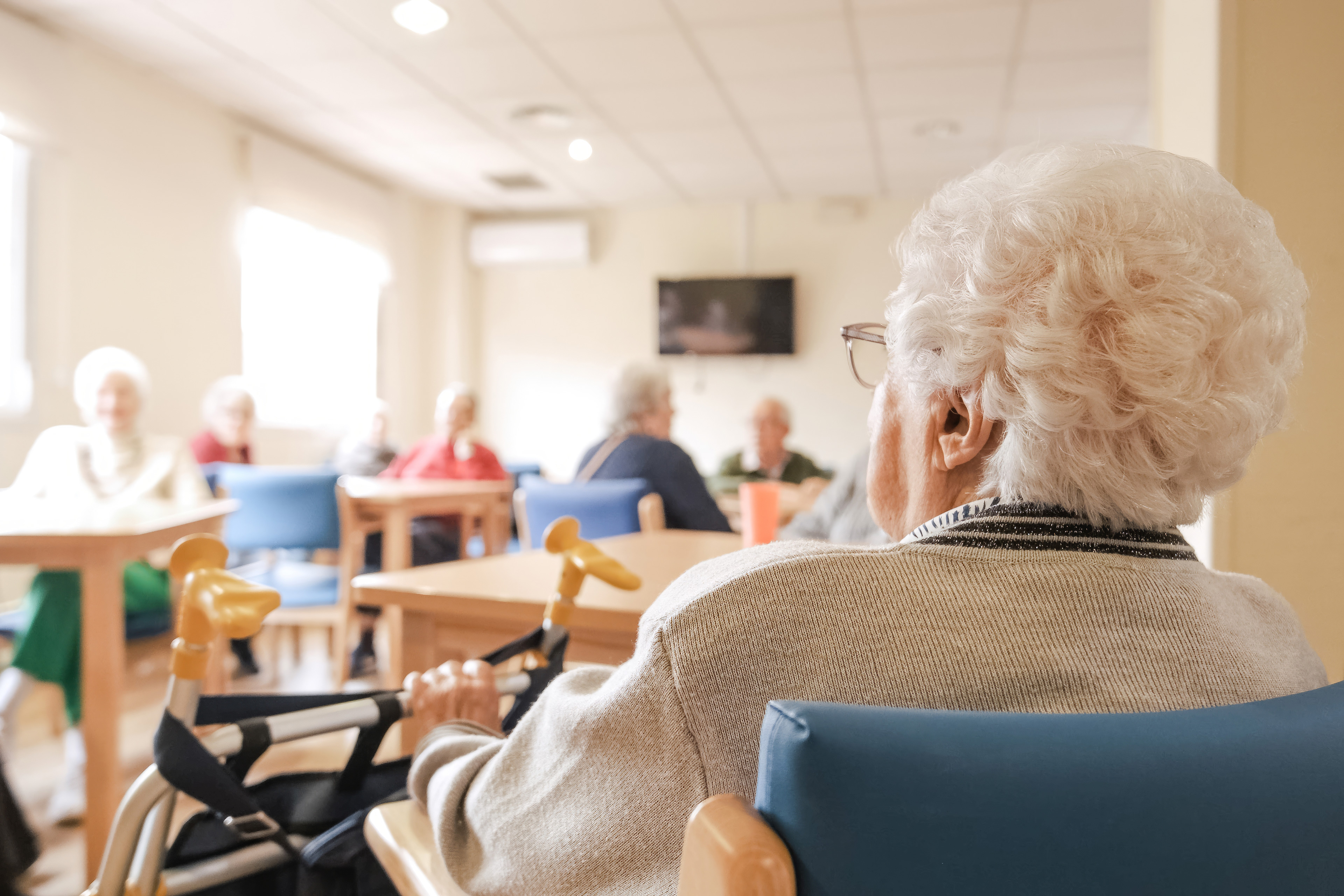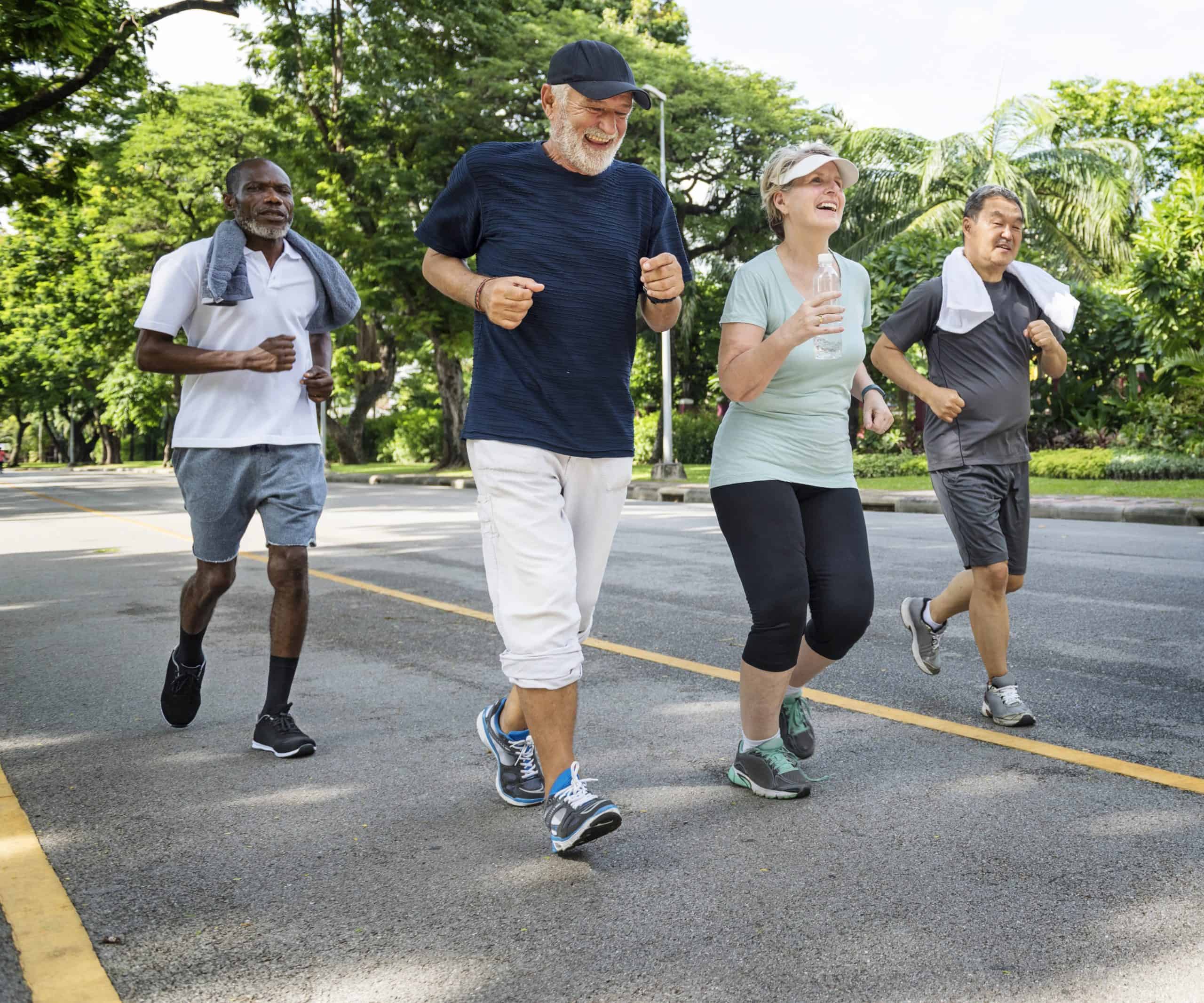The human body is amazing and complex. Our bodies allow us to breathe, to move, to think, to interact with others and so much more. But despite all the things bodies do for us, we can be hard on ourselves and others for the ways we look, feel, move or act.
Unfortunately, words and actions related to weight and appearance can make us feel worse, or even ashamed of our bodies. Read on to learn more about types of body shaming, how it can affect a person’s mental and physical health, and what you can do about it.
What is body shaming? Actions or words that make a person feel bad about what they look like.
Body shaming includes comments and behaviors that make someone feel bad about their body. People can be body shamed for how they look, what they wear and what they do, including:
- Physical attributes – This can include any aspect of a person’s appearance, including body size and weight. Body shaming can also include discrimination based on skin color or hair texture.
- Behaviors – Body shaming can focus on behaviors that may influence appearance, such as food choices and how much a person exercises.
- Clothing and grooming – People can be body shamed for clothing or makeup that doesn’t follow the latest trends or certain societal norms. This could include wearing cultural clothing and bathing less frequently than their peers.
- Traditional gender norms – People that don’t match certain societal ideals for femininity or masculinity may be body shamed for their appearance and behaviors.
People can be body shamed by others and themselves
Body shaming can be done by strangers, peers, parents, siblings and friends. You may also have shaming thoughts about your own body or how you compare to others.
Body shaming can occur even if comments aren’t intended to be mean
Body shaming can be a form of bullying where a person says unkind words to make someone feel bad. Oftentimes comments that are body shaming aren’t meant to hurt. But joking, teasing and well-meaning advice can come across as body shaming.
Messages can be body shaming even if they’re not directed at a specific person
Body shaming doesn’t always come from messages directed at a specific person. It can happen remotely through magazines, social media and the internet, because they seem to suggest that we should want to change and be more like the glamourous, thin people we see there. We’ll talk more about the impact of mass media later in this post.
Body shaming about weight is most common
In the U.S., most body shaming is related to a person’s size and shape, and by extension, what they eat and do. Examples of body shaming include:
Fat shaming
Fat shaming is very common and affects people of all ages and genders. People can be fat shamed if they’re overweight, normal weight or even thin.
- Intentional fat shaming – Fat shaming can be direct and obvious, such as calling someone “fat” or “huge.” Numerous studies show that overweight children are more likely to be bullied than their peers. A survey by the Obesity Action Coalition reported that 58% of high school boys and 63% of high school girls medically classified as overweight experienced daily bullying about the size or shape of their bodies.
- Unintentional fat shaming – Fat shaming can also include comments that aren’t intended to be mean. For example, saying someone has “chubby cheeks” or is “curvy.” Praising weight loss can also be fat shaming since it can make someone feel ashamed about how their body looked in the past.
- Self-directed fat shaming – You can also fat shame yourself, by saying or thinking things like “I feel so fat right now.” Negative self-talk can be just as harmful as the comments and words of others.
Skinny shaming
Some people may think that if you’re thin, you won’t be body shamed, but that’s certainly not the case. Skinny shaming is when people criticize the bodies of thin people and make negative comments about them. It’s less common than fat shaming, but it still happens, and when it does it can be just as hurtful.
Skinny shaming can make people feel self-conscious or embarrassed about how their bodies look, even if they have a body size that’s considered attractive in our society. It can also make boys and men feel like their bodies don’t meet society’s ideals for masculinity.
Food shaming
Food shaming is judging someone based on their eating habits. It’s not always related to body size, but it can be. Food shaming can contribute to feelings of guilt, anxiety around eating and poor body image.
When someone makes a remark about what a person is or isn't eating, it can count as food-shaming – even if it’s not intended to be mean. Examples of food shaming include commenting on portion sizes, judging food choices (for example, eating fast food) or offering dieting advice.
You can also food-shame yourself. For example, thinking, “I shouldn’t have a piece a cake because I’m fat.”
How mass media and social media contribute to body shaming
Mass media, including social media, encourages societal standards around attractiveness by consistently promoting certain beauty standards, such as slim bodies, flawless skin and symmetrical features. There are also widespread assumptions that people need to be thin to be healthy, even though it’s possible to be healthy at any size.
Filtered perfection on social media
Social media tends to place a lot of emphasis on physical appearance and perfection. But the faces and bodies on social media often don’t reflect reality.
AI beauty filters (such as TikTok’s Bold Glamour Filter) make it easy for a person to transform images and videos of themselves. These filters can smooth out skin, apply virtual makeup and even change your features. For example, they can change the overall shape of the face to add cheekbones or make a person’s eyes and lips larger.
Perfected images of others can make you feel bad about your appearance, even if you know (or suspect) that someone has used a beauty filter. And when you use one of these filters, it may make you think that you need to change your appearance in order to be attractive. You may also feel like you always need to look “perfect,” which is impossible for anyone.
Body size in mass media
In mass media, the thin bodies of models and celebrities set the standard for attractiveness. These standards aren’t normal, attainable or healthy for most people. But they are still a reason why people may body shame themselves or others.
- Female body size – A female fashion model typically has measurements of 34-24-34 inches (bust-waist-hips) and typically wears a dress size between 0 and 4. This is a lot different than the body of an average U.S. woman, who has a dress size between 16 and 18.
- Male body size – Male fashion models also have different bodies than most men. They are taller than average, with a 32-inch waist. In comparison, the average waist size for U.S. men is just over 40 inches.
Why do people body shame? Reasons why body shaming in society is so common.
Messages about our bodies and appearance are so much a part of our culture that we don’t really notice them. But even if you don’t notice, these messages can impact how you view yourself and others.
People may use body shaming to make themselves feel better or make others feel worse. In other cases, body shaming happens when people don’t consider the impact of their words.
People may body shame to feel better about themselves
Body shaming can be rooted in personal insecurities. People who are self-conscious about their own bodies might criticize others to feel better. About 40% of Americans are always unhappy with their appearance. And many of us are unhappy with our bodies at least some of the time.
Body shaming can come from lack of awareness
Sometimes, people don’t realize their comments are hurtful or inappropriate. As mentioned above, people may think they’re joking or even offering a compliment.
People can feel insecure about parts of their body that others might find attractive or even envy. What you see as great, might not be how they feel about it.
For example, you may think that being extraordinarily tall is a good thing, but it’s possible that people may feel bad when someone describes them as “lanky” or “statuesque” because they wish they weren’t so tall.
Families can contribute to body shaming behaviors
Parents are role models for their children, and how they talk about bodies and food affects how a child views their body and the bodies of others. This includes when a parent complains about their own shape or weight, discusses the bodies of others, or talks about how their child looks and what they eat. Grandparents, aunts, uncles and other family members can also have an impact.
Body shaming can have a serious impact on mental and physical health
Body shame can make you self-conscious and contribute to serious mental health conditions, including eating disorders, depression and anxiety. It can also cause changes in your behaviors that make your physical health worse.
Body shame can lead to poor mental health and suicidal thoughts and behaviors
Body shaming can significantly affect mental health, causing anxiety, depression and lower self-esteem. People who are body shamed may withdraw from family and friends, and this social isolation can make mental health concerns even worse. Numerous studies show that body shame increases suicidal thoughts and behaviors in adolescents and young adults, especially those who identify as overweight.
If someone is suffering from mental health concerns, such as anxiety or depression, a mental health specialist can help.
Negative body image can contribute to eating disorders
A negative body image is one of the main risk factors for eating disorders. Body shaming can heighten issues with disordered eating, such as dieting, restrictive eating, binge eating episodes and purging.
Eating disorders linked to body shaming include:
Eating disorders are serious mental health conditions that can affect every aspect of a person’s life. If you notice symptoms of eating disorders in yourself or a loved one, it’s important to get help. Call 952-993-4100 to schedule an eating disorder assessment.
People may use drugs and alcohol to cope with poor body image
The negative emotions caused by body shaming can make someone turn to substances like drugs or alcohol as a way to cope with emotional pain or temporarily escape reality. A mental health specialist can help with addiction caused by body image issues.
Body shaming can make body dysmorphic disorder worse
Body dysmorphic disorder (BDD) is a mental health condition characterized by an obsessive focus on perceived flaws or defects in one’s physical appearance. Often these perceived flaws are related to a specific feature – for example, a nose.
These perceived flaws are often minor or not noticeable by others. However, if someone is critical of a perceived flaw, it can make a person’s condition significantly worse. They will likely be more obsessive, self-conscious and feel worse about themselves. They might avoid social situations due to their distress about their appearance, causing relationships and performance at school or work to suffer. They may also engage in eating disorder behaviors such as binge eating and purging.
Body dysmorphic disorder is treated by mental health specialists.
Body shaming can cause physical health problems
Body shaming can cause low self-esteem, guilt and shame – all of which can lead to choices that cause health problems.
Research shows that fat shaming can make people sicker and heavier. Fat shaming can cause a person to exercise less and eat more, resulting in weight gain and an increased chance of high blood pressure, unhealthy cholesterol levels, heart disease, type 2 diabetes and other physical health problems.
A person who is body shamed may also try aggressive dieting as a way to lose weight, and end up in cycles of dieting and binge eating, potentially leading to a binge eating disorder.
If body shaming has affected your physical health, a good place to start is with an appointment with a primary care doctor.
Body shaming at the doctor’s office
If you’ve felt body shamed at the doctor’s office, it’s totally understandable that you may be hesitant to make a doctor’s appointment. But it’s important to talk to a doctor about health problems before they get worse, so try to find a doctor who makes you feel respected and heard.
A doctor may need to talk about your weight if it’s affecting your overall health, but you should expect more than comments about how much you eat and move. Ask your doctor about other ways to improve your health and well-being.
If you have a negative experience with a doctor, let the clinic or health system know. At HealthPartners we use follow-up surveys to collect honest information about our patients’ experiences.
How to deal with body shaming
Here are some things you can do to reduce the impact of body shaming on yourself and others.
First, take steps to become more body positive or body neutral
You may have heard people talk about body positivity. The term is generally used to mean loving your body (and the bodies of others) regardless of size, shape, color, sex or ability. Loving your physical body is wonderful, but it can be really hard to do.
Body neutrality is another way to practice self-love and acceptance. You practice body neutrality by focusing on what your body can do and your nonphysical characteristics. With body neutrality, you give your physical appearance a neutral value. That doesn’t mean you don’t like or care for your physical body, but that your appearance isn’t what makes you valuable.
Tips for improving your body image from the Melrose Heals podcast
Be mindful of your thoughts
Pay attention to your thoughts about yourself and others. If you’re like most people, you’ll have some unkind opinions that are body shaming. Think about what might be causing them. Are they shaped by society, peers, friends or family?
Make an intentional effort to stop unkind thoughts. One way to do this is to replace negative thoughts with positive ones. Focus on what you like, appreciate, or admire about yourself and others.
Doing this can help you develop and deepen respect, care and compassion for others and yourself.
Try not to talk about people’s bodies, even if you’re trying to be nice
Even compliments can be taken the wrong way and cause negative emotions, so it’s safest to avoid talking about a person’s body. In particular, steer clear of positive feedback about weight loss (or weight gain) since it can reinforce the idea that being a certain weight or size is what’s most important about them.
Speak up if others body shame
If you hear someone say something that could be body shaming, try to steer the conversation away from body weight, size, shape or appearance.
You’ll also want to let the speaker know that body shaming is never okay, and that it can be harmful to them, yourself and others. But no one likes to be told they’re doing something wrong, so try to be kind and understanding when you speak with them. Talk to them when they’re alone and offer encouragement rather than blame.
Keep in mind that it can take time to change, but if a person continually body shames you or others, it may be best to avoid them.
Be more mindful of social media use
As mentioned above, social media can have a big impact on body image. Mindful use of social media can help you cut down on content that can make you feel bad about yourself and more critical of others. Here are a few things that can help:
- Learn more about how social media platforms work – All social media sites use algorithms, a set of rules that determine the type of content to show based on your interests or what you’ve looked at in the past.
- Only engage with accounts that inspire you – If there’s content or accounts that are body shaming, or cause stress or negativity, be quick to remove them from your feeds. Instead, look for uplifting content on topics that interest you.
- Set boundaries for social media use – Set aside specific times for social media use but otherwise stay away. For example, you may choose to use social media three times a day, for 20-30 minutes at a time.
- Use offline time for self-care – Cutting back on social media may also provide opportunity to do things that can make you feel better about life and your body, like spending time with friends or getting outside for a walk.
- Surround yourself with people who love you and care about you – When we are with people who are positive and say positive things, we start feeling that way too. Find good people and keep them around.
When to talk to a doctor about concerns about body image, food or mental health
If body shaming is affecting your mental or physical health, it’s time to get help. Making a primary care appointment is always a great place to start. But if you think you or a loved one has an eating disorder, schedule an initial assessment at Melrose Center.

















 English (US) ·
English (US) ·